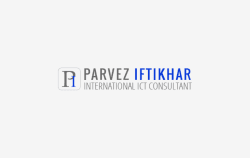March 2012
NOTES FROM UKRAINE
FOR FOUR DAYS THAT I WAS IN UKRAINE THE MAXIMUM TEMP. WAS MINUS 2 C AND THANKS TO LANGUAGE ISSUE, “BREAKING THE ICE” WASN’T ALL THAT EASY EITHER! But two things I couldn’t help noticing. The first thing was that despite the huge differences between Ukraine and Pakistan, there are also striking similarities, especially in the…
Read More
